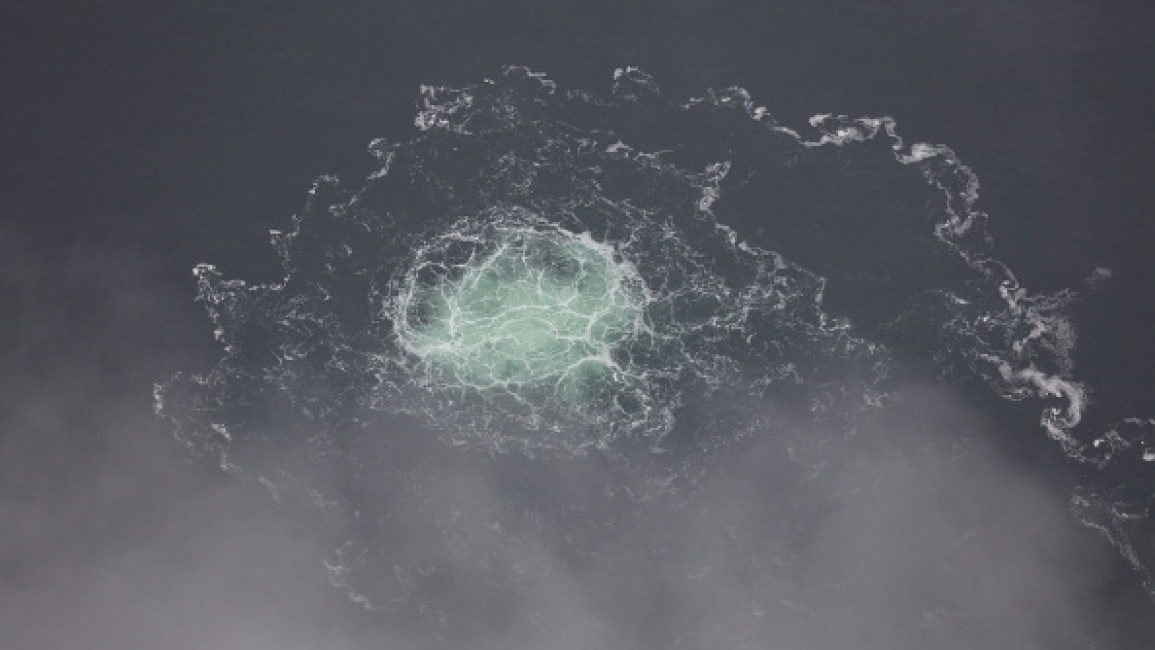Nord Stream explosions: are we any closer to finding the culprits?
The search for the perpetrators in the Nord Stream pipeline attacks that shook Europe in September 2022 took an unexpected turn this week after US reports pointed to the suspected involvement of an unknown group of operatives allegedly at the behest of Ukraine.
After Russia was blamed for the attack on the Baltic Sea gas pipeline last year, The New York Times reported on Tuesday that US intelligence officials believe a cell of anti-Putin Russian and Ukrainian saboteurs could be behind the explosions.
The revelation threw up more questions than answers with the hunt still ongoing for the perpetrators.
What happened?
Undersea blasts damaged the Nord Stream I and II pipelines, at the bottom of the Baltic Sea in late September 2022, leading to a new low in relations - or lack thereof - between the West and Russia, seven months after Russia's invasion of Ukraine.
Nordic investigators said the blasts involved several hundred pounds of explosives and led to huge methane leaks that continued for several days, rendering the supply lines inoperable.
At the time of the blast, Russia was already becoming increasingly capricious in restricting its supply of gas through the key pipeline.
In the weeks and months leading up to the attack, the supply was cut off - then on at a trickle, then back on again - with Russia flexing its dominance over Europe's precarious energy supply.
What’s the latest?
A New York Times report, citing intelligence reviewed by US officials, said on Tuesday that a pro-Ukrainian group may be behind the unprecedented attacks.
A separate report by Germany's ARD broadcaster and Zeit newspaper said on Tuesday the operation to place explosives on the seabed was carried out by six people - five men and one woman - who used forged passports.
They supposedly transported explosives on a yacht rented from a German charter company by a Poland-based firm owned by Ukrainian citizens.
These claims have been widely disputed in Danish media, however, where experts have alleged that the boat in question was insufficient to transport such a large amount of explosive material.
While not ruling out Ukrainian involvement, Germany has also said a Russian false flag operation is equally as likely.
Who was behind the attacks?
The US intelligence released this week seems to point to a group of anti-Putin private individuals from both Russia and Ukraine, acting outside the purview of either state, in the interest of Ukrainian resistance.
Whatever their veracity, the latest developments have only added to the myriad theories of superpower subterfuge, rogue state actors, and false flag operatives.
From the get-go, several nations had both the means and motives to carry out dramatic sabotage of Europe's key energy lifeline.
At various points, Russia has blamed the UK, while the US has pointed fingers at Russia, and everyone has had questions over Ukraine's involvement.
German Defence Minister Boris Pistorius maintained on Tuesday that the Nord Stream pipeline explosion could have been a "false flag operation staged to blame Ukraine".
Clearly, this week's revelations do little to lay any accusations to rest.
What happens next?
Since the pipeline was first breached, Russia has been pushing to be part of the international investigation seeking out the perpetrators.
Until that happens - which appears highly unlikely - consensus on the reliability of investigations will be nigh-on impossible to reach.
Despite the revelatory reports in recent days, questions remain over the reliability of information that has been so closely guarded and selectively released.
If the original intent of the pipeline breach was to bring a sudden end to Europe's addiction to Russian gas, and cement Western support for Ukraine - as is indicated by the latest reports - then the perpetrators may consider a job reasonably well done.
European powers have - to a considerable degree - been successful in finding alternatives to Russian gas.
From Algeria to Qatar, foreign ministers have been on the charm offensive seeking quick fixes from the MENA region and beyond.
If concrete evidence emerges that the attack was sanctioned or encouraged by the Ukrainian government, however, the plan may well backfire.
A blatant attack on European energy supplies by a supposed ally could lead to distrust of Kyiv at a time Ukraine is courting its Western backers for more arms in the fight against Russia.



